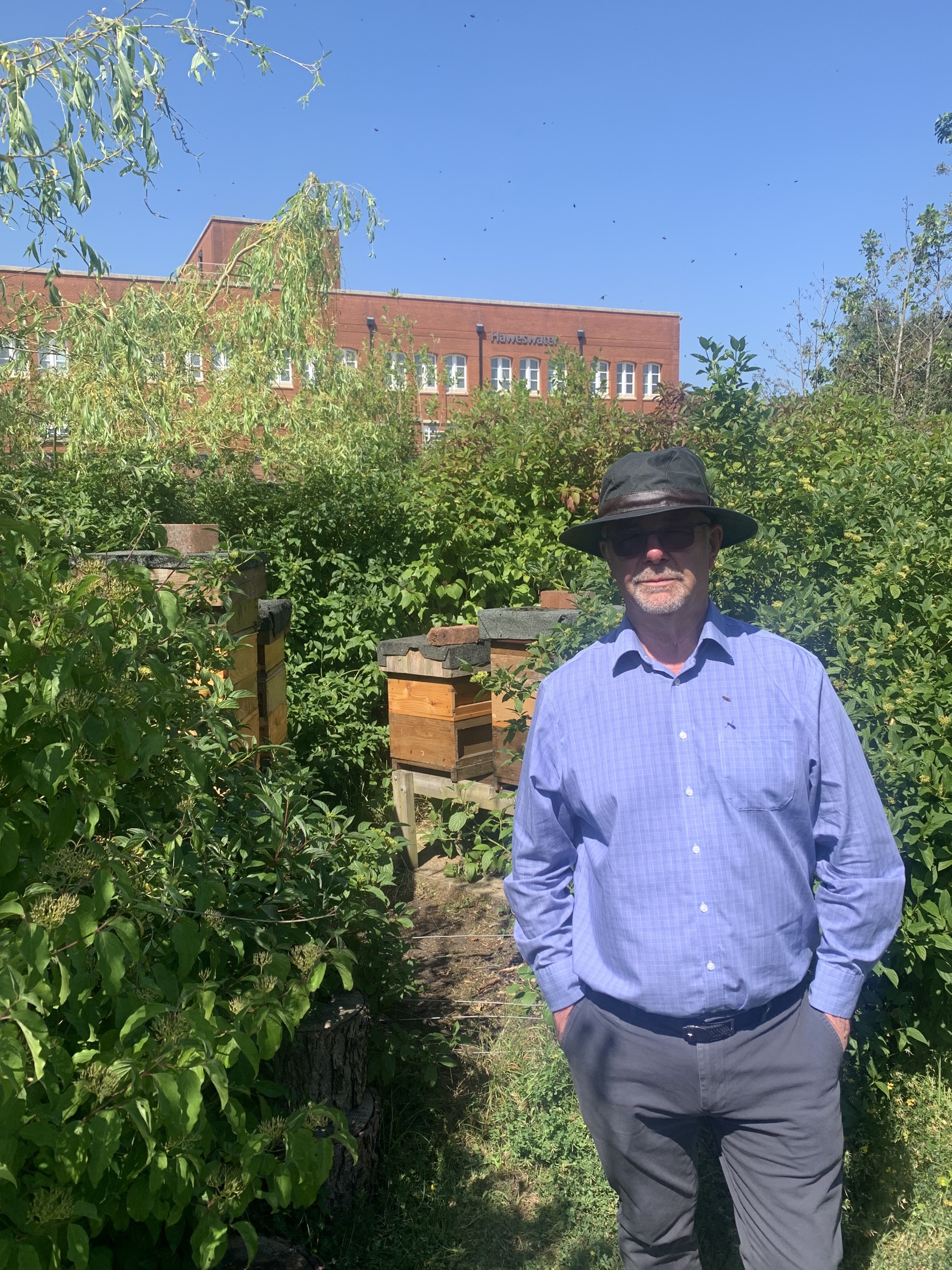It’s Bees’ Needs Week and there’s a real buzz at Lingley Mere!
It’s Bees’ Needs Week (10 to 16 July) and Lingley Mere is buzzing thanks to the resident bees that are busy, busy, busy producing tasty honey and pollinating plants.
The Warrington head office of United Utilities has a wealth of wildflower and grassland areas, making it the ideal home for four colonies of honey bees who have lived there for around eight years.
With plants flowering from early spring through to late summer, including bee orchids, southern marsh orchids, cow slips, and ox-eye daisies, the site is a haven for the bees and other pollinators too. The tasty honey produced by the resident bees is snapped up when it is sold among colleagues, and the insects are playing their part for the wider food chain too by pollinating plants around the area.
 Alan Robinson, Estates Manager at Lingley Mere, helps to care for the bees on the site. “We’re really proud of our four hives,” he said. “Caring for bees is so rewarding, and many colleagues enjoy the honey they produce.
Alan Robinson, Estates Manager at Lingley Mere, helps to care for the bees on the site. “We’re really proud of our four hives,” he said. “Caring for bees is so rewarding, and many colleagues enjoy the honey they produce.
“Everyone can do something to help the wildlife. Whether you’ve got a sprawling garden, a small balcony or anything in between putting out a bowl of water, creating a shady spot, and planting a few flowers can make a real difference.”
United Utilities Principal Landscape Architect Brian Tollitt added: “We’ve got a really good mix of wildflowers here on site and they are very well established so they come back every year providing a welcoming environment for numerous pollinating insects. As well as the wildflowers and long grasses we’ve got our meres, which are a vital source of water for insects and birds in this warm weather.
“I’d encourage anyone who is out and about across Warrington during this lovely weather to take a few minutes to stop and enjoy the nature that is all around us. It’s a great way to give your mental wellbeing a boost, and you never know what you might spot if you take a closer look!”
United Utilities has 143 hives on its land across the North West, and with around 60,000 bees per hive, that could mean the company has a staggering 8.5 million additional workers helping to pollinate plants and crops.